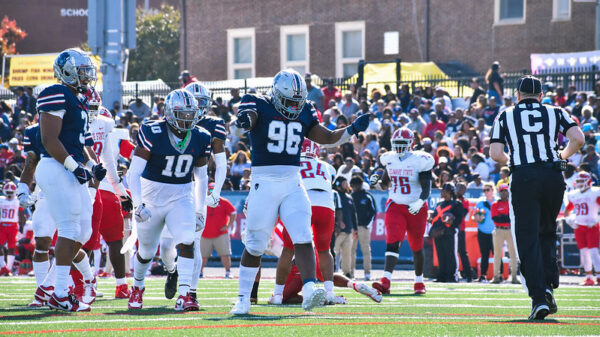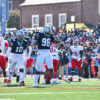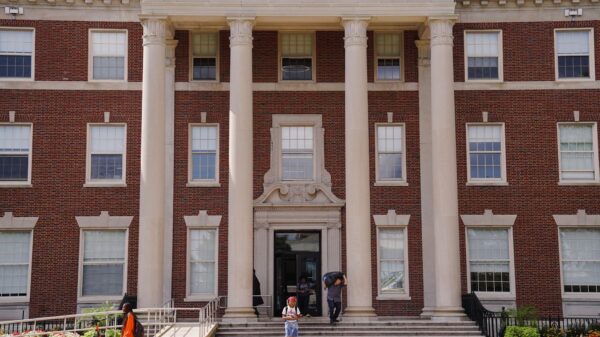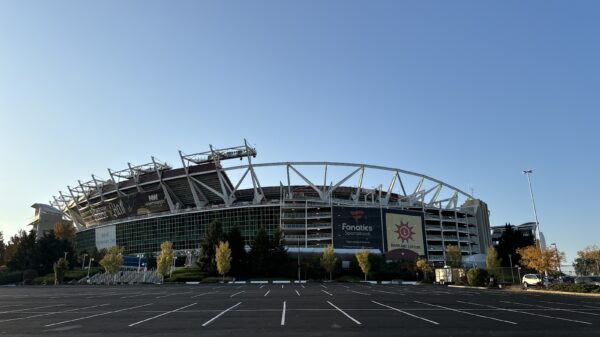By: DaQuan Lawrence, Staff Reporter
Image Courtesy of Center for African Studies
The Center for African Studies (CfAS) at Howard University, the Ralph J. Bunche International Affairs Center and Howard University School of Business’ HPS-Center for Financial Excellence hosted a discussion between the Howard community and Michael Sudarkasa, CEO of the Africa Business Group, about obtaining careers with private organizations working in Africa.
The event, which was held on March 28, was part of the Black Internationalism Career Corner talks series, which consists of annual virtual forums for Howard students, recent graduates of HBCUs and young professionals to engage with international professionals working across the African continent and learn to acquire careers around the globe.
This iteration of the Black Internationalism career talk focused on private sector career opportunities in Africa for Black young professionals. The private sector is the portion of the economy that is not under direct government control, and consists of private for profit and non-profit organizations.
Black internationalism refers to the low concentration of professional African descendants in international fields and industries throughout the world, which Howard seeks to increase. The first event of the series featured the U.S. Diplomat-in-Residence, Dr. Yolanda Kerney, who discussed how students could utilize their African language skills to pursue Africa-related careers.
Born in New York City, NY, and raised in Ann Arbor, MI, Sudarkasa is the son of esteemed anthropologist Dr. Niara Sudarkasa, the first female president of Lincoln University (PA), who traveled to twenty-seven African countries and conducted research in West Africa, the Caribbean, and the United States.
Sudarkasa lived in Ghana at ages 3 and 4, Nigeria at ages 9 and 10, and spent summers in Benin and Cote d’Ivoire at age 18 and 22, respectively. Sudarkasa has worked in Africa for more than 20 years while living in South Africa for 23 years, and provided information about how students can leverage their college experience in the current global economy to obtain international careers.
Sudarkasa is also the Country Coordinator for South Africa, Lesotho, and Eswatini in the Private Financing Advisory Network (PFAN), a global network that offers free business coaching and investment facilitation to entrepreneurs.
At the virtual event, he told Howard students that studying abroad or traveling to countries of interest during spring breaks and summer months and taking language classes can improve career prospects. Sudakarsa provided guidance on how students can leverage internet resources such as LinkedIn.
Sudarkasa mentioned that many African Americans have dated concepts of Africa, the challenges African nations endure as well as the opportunities Africa can provide. He believes there is a lack of awareness about how Africa contributes to the global economy and who the key non-African actors are on the continent.
“I think that African Americans and diaspora Africans should do their best to stay aware of political, economic and social developments in contemporary Africa if they have an interest in the continent. If they are interested in the economic opportunities on the continent or consider themselves ‘Pan-Africanists’, then they should visit the continent – regularly if possible,” Sudarkasa said.
Rene Odanga, 25, is a masters student in Howard Graduate School’s African Studies department and vice president of the African Studies Graduate Student Association. He helped organize the event.
Born in Nairobi, Kenya, Odanga thinks the Black International Career Talks offered by Howard’s Center for African Studies provides helpful information for students of African descent, particularly those interested in working in African nations.
“I resonated with Mr. Sudarkasa’s position on the need for Africans in the diaspora to gain certain levels of cultural sensitivity in re-integrating back on the continent. Especially because that will be my position in a few years’ time” Odanga said.
“I know African Americans with concerns about feeling unwelcome or experiencing a form of hostility during their interactions with Africans on the continent. Possibly because of a cultural disconnect that can be alleviated by the pointers that Mr. Sudarkasa spoke to,” he continued.
The event highlighted the role that Washington D.C. plays for diaspora Africans and African Americans alike as the DMV area has a highly educated and affluent population of middle-class African descendants who work on international affairs.
Abdel Mouncharou, 37, is a PhD student in Howard’s Graduate school concentrating in African Studies. Born in Cameroon, Mouncharou believes that the event provided a wide range of scenarios that U.S. citizens can use for a successful career in Africa.
“The event’s commentary was very useful. I liked the way Mr. Sudarkasa presented potential challenges that can be faced in Africa, and ways to overcome those challenges. I also appreciated the examples provided about networking using conferences, workshops, school events, events at embassies while still in school to anticipate opportunities in Africa,” Mouncharou said.
Sudarkasa feels that HBCUs should not wait to be approached and instead seek to collaborate with the private sector, public sector, universities and international organizations based in Washington D.C. to create opportunities for HBCU students in Africa.
“I think that the easier exercise is for HBCUs to make it known that Africa-involved institutions… are valued and welcomed and indeed solicited to come to campus and engage with their students,” said Sudarkasa.
“I believe that if asked they would come, and through such visits, guest lectures, and exchanges it will be easier for HBCUs to establish strategic partnerships that can help students find professional (and intern) opportunities,” he continued.
Howard University currently has over 800 students enrolled in African language courses, the most of any educational institution in America. As a Title VI institution that receives funding from the U.S. government, the Center for African Studies seeks to connect Howard and HBCU students with opportunities in Africa.
Copy edited by Ashleigh Fields











